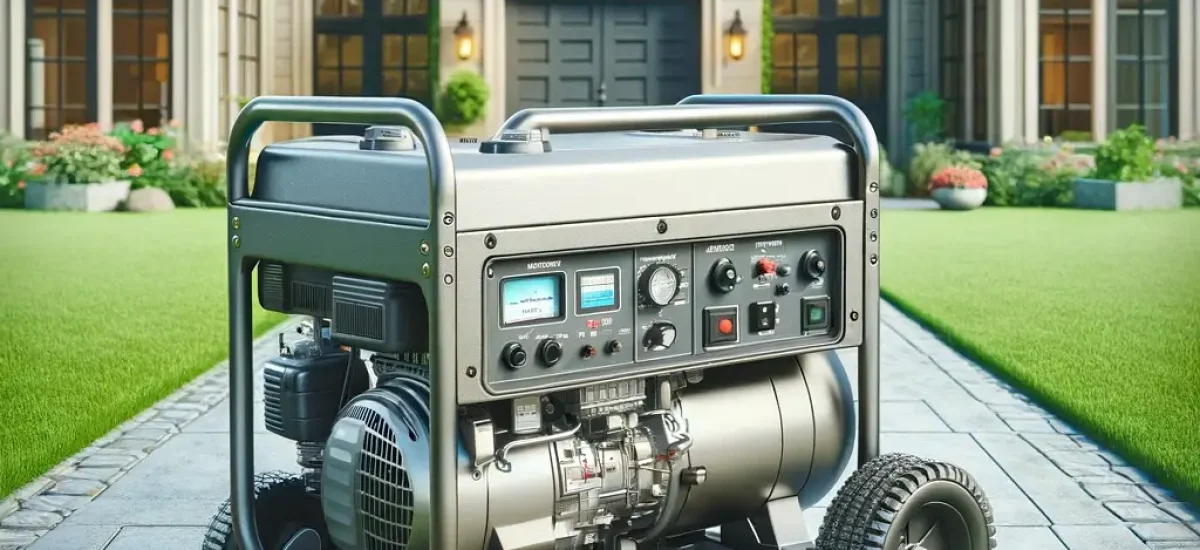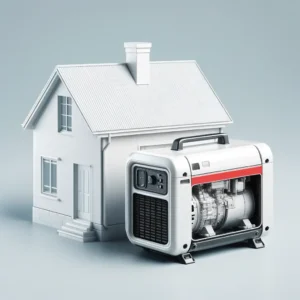Decibels allowed for electric generator at home
An electric generator turns out to be a very useful machine at home. Its function, essentially, is to provide electrical energy in the event that, for any reason or eventuality, the main source is interrupted. Its advantages are enormous in the domestic sphere, taking into account that daily life takes place between household appliances and depends largely on electricity. But what about decibels?
However, despite the benefits that having an electric generator at home can mean, there is one detail that is worth considering: the noise it generates. As it is a powerful machine, it is reasonable that it has an engine whose operation, residually, generates high levels in terms of decibels.
It is clear that excessively loud noise is uncomfortable and even harmful to people and the environment. The legislation on the permissible decibels, not only of electric generators but of any machine or activity, depends on the local jurisdictions of each region. The best way to keep the decibels at permitted levels is to consult the relevant jurisdictions.
Next we will talk about the decibels produced by electric generators. What are decibels? How many decibels does an electric generator produce? Is the noise really that loud? What can be done to mitigate it? We will try to answer these questions simply and precisely, as they are important questions that determine the decision to purchase a generator or not.

Table of Contents
What are decibels?
A decibel (or decibel), contrary to common belief, is not simply a unit of noise measurement. In addition to being a concept applicable to the field of acoustics, it is used in the language of electricity. A decibel expresses the relationship between two powers, quantities or magnitudes: the one being studied, and the reference one.
In this way, a decibel expresses a ratio of 1/10 of a bel and expresses an increase by a factor of 10 with respect to the reference magnitude. Applied to the field of acoustics, where the perception of noise for the human ear is relative, the decibel is the unit in which the amount of noise in the environment is expressed. One value is zero (total silence, from where the hearing threshold starts) which is the reference value, and the value to be studied (in our case, the electric generator).
For example, the decibels that could be recorded in a whisper range from 0 to 10. Since they are increased by a factor of 10, a 50 decibel sound, such as that of a normal conversation, would be about 100,000 times louder than that of a whisper. . It seems incredible, right? Heavy traffic in the city can register about 70 decibels. Fireworks rockets or a car horn reach 110.
Decibels in an electric generator
What are the decibels that an electric generator registers? There is no single answer on this matter: decibels vary. The noise depends on the type of generator (if it is gasoline or gas or diesel), the power of the engine (the more powerful, the louder), and whether or not it has a noise damping or silencing system.
The truth is that an electric generator is not exceptionally noisy, although it does involve considerable noise pollution that would be worth reducing. It is important to find a way to make a generator quieter, bearing in mind that high-power generators are used in environments where silence is valuable, such as hospitals, offices, or residential complexes.
For example, the noise that would be emitted by a low power (6 to 10 KW) mobile electric generator that is soundproofed is relatively low. The decibels it produces range from 59 to 62 decibels. If we talk about a more powerful diesel generator that generates 30 KW, it produces approximately 90 decibels. However, if it is soundproofed, that noise level drops to 64 decibels.
Our most powerful generator, the JP 60E, capable of generating around 60KW without problems for several hours, produces around 97 decibels. In perspective, that noise is not too loud, considering the fact that a motorcycle produces just over 100. However, this 97 decibels from the generator can be reduced to about 67 decibels by an exhaust silencing system.
We note that the noise produced by an electric generator depends on many factors. Thus, it is perfectly reasonable that these factors can be played with so that the noise is as least uncomfortable and invasive as possible.
How can the noise of an electric generator be attenuated?
As already mentioned, the noise produced by a generator depends, in part, on its power. The more powerful your engine, the more decibels it produces. But this is not the only relevant factor. Among others, the factors that affect noise (or the perception of noise, rather) are:
- The silencing system. This system integrates with the engine's exhaust system, which drastically reduces residual noise. Up to 30 decibels they stop being perceived.
- The frame or framework. If it has a frame, it prevents the noise of the motor running from being loud outside. If you don't, the engine would basically be exposed to the environment, which would mean more noise pollution.
- The positioning and distance of the generator from people. This factor is decisive: if the generator is too close to a residential area, even if it is not very noisy, it will be uncomfortable for those who perceive it. On the contrary, if it is far away (or if its installation is underground, as may be possible), the noise of the generator will be less noticeable.
We are committed to the responsible supply of electric power. This commitment, of course, implies that the machines must meet certain parameters that guarantee the convenience, comfort, and well-being of those who benefit from them. Below you can consult these parameters, in addition to the technical specifications of the generators.

La electricidad impulsa casi todo lo que usamos a diario, desde electrodomésticos hasta maquinaria industrial. Pero, ¿sabías que existen diferentes tipos de electricidad con características

La electricidad es una parte esencial de nuestras vidas, desde el encendido de una simple bombilla hasta el funcionamiento de industrias enteras. Pero, ¿alguna vez

Elegir el aceite correcto para un generador de luz es fundamental para asegurar su rendimiento óptimo y prolongar su vida útil. Sin embargo, muchas personas

En un mundo cada vez más dependiente de la energía, contar con una planta eléctrica para casa se ha convertido en una necesidad esencial. Ya

In a world where sustainability is no longer just an option, but an urgent necessity, renewable energies stand out as the key to

In the current context, where sustainability has become a global imperative, it is crucial to understand which energy sources are renewable and how

